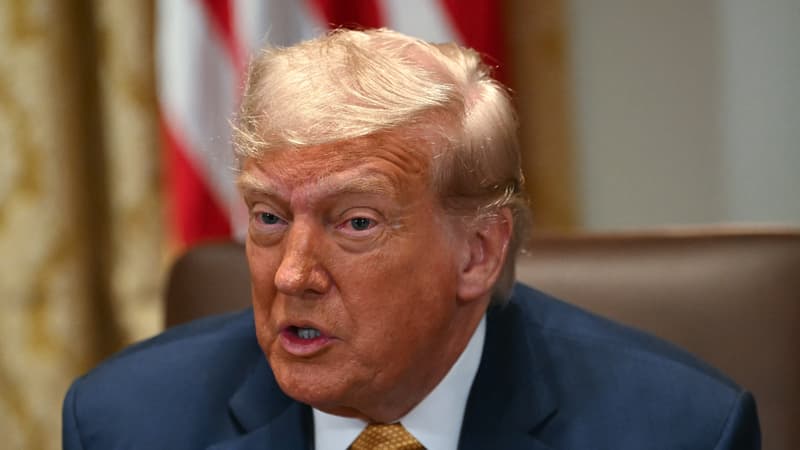Donald Trump Redobla. According to several Financial Times sources, Donald Trump harden the tone in the negotiations with the European Union and claims minimum customs duties of 15 or 20%, even in case of agreement.
After the publication of this information, the US markets fell: the Dow Jones sold 0.32 % and the S&P 500 index lost up to 0.2 %.
For weeks, European negotiators have discussed in the hope of reaching an agreement with their US Homoteas. Currently, the European Union is led by customs duties of 10% in its properties exported to the United States. But in the absence of agreement, a 30% rate will be applied as of August 1.
According to Bloomberg, the European Union is ready to accept an agreement that provides customs tariffs of 10%, in exchange for certain exceptions about the car, steel and aluminum, as well as pharmaceutical products or alcohol.
But the option of an agreement that would maintain 10% customs duties no longer seems to be on the table for Donald Trump. In any case, this is the position that the president advances to redouble the pressure on Europeans in the negotiations.
The “Bazooka” commercial, a definitive weapon never used by Brussels
The main commercial negotiator of the EU, Maros Sefcovic, went to Washington on Wednesday, July 16 for conversations with his American counterparts, but the commission did not give details about these meetings.
Then, in parallel with the negotiations, the EU prepares her answer. Airplanes, cars, Bourbon … The European Commission has already established a list of products that it could tax. But the EU also plans to address US services, including technological and financial services, which are probably subject to restrictions, for example, on access to European public contracts.
However, not all countries seem to be aligned with the intensity of the response to provide. Some, including France, requested a firmer position. Until implementing its most powerful commercial tool, “the anti-coercion instrument”, if negotiations with the United States fail.
Nicknamed “Bazooka”, this tool was considered a deterrent to activate after the exhaustion of diplomatic roads. In particular, it would allow freezing of access to European public contracts or the blockade of certain investments, but requires several months to enter into force.
Source: BFM TV


